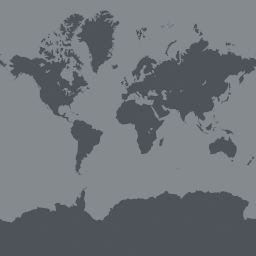This project builds the capacity of a national data holder network in Angola to digitize and manage biodiversity data. The Angolan node of the international research centre Southern African Science Service Centre for Climate Change and Adaptive Land Management (SASSCAL) is developing a national network of data providers, holding institutions and data users, in keeping with its mission. Funding from the BID programme goes towards training members of the network in digitizing and publishing data.
The project will develop a national biodiversity data portal and will publish more than 100,000 specimen and sampling-event data records. Published records will contribute to mapping species distributions and priority conservation areas.
Project Progress
Since the memorandum of understanding formalizing data sharing agreements had been signed between the Southern African Science Service Centre for Climate Change and Adaptive Land Management (SASSCAL), Angola and Instituto de Investigação Agronómica (IIA) and discussions about the development of a National Biodiversity Data Portal had also started with the Instituto Nacional de Biodiversidade e Areas de Conservação (INBAC) the project has now progressed with data publishing efforts.
A core team involving SASSCAL-BID and IIA collaborators is currently digitizing the Herbarium and Insect collections at the IIA. Specimens are being preserved and sorted by family and genera with more than 15,000 specimens already digitized. Digitization of the Entomological collection has started and an Odonata dataset is on the way to publication containing 1000 records. Collections for Hymenoptera (close to 6000 records) and Lepidoptera (around 14000 records) are nearing completion. With the assistance of employees from IIA and student support, 1000 records of the herbarium collection have been digitized and are pending georeferencing.
A member of the project team attended the first GBIF-BID capacity enhancement training workshop held in Kigali, Rwanda, and shared information received about digitization with the core team. Contacts with SANBI in South Africa and University of Oxford in the United Kingdom have been taken to further enhance the project team capacity.
Due to the technical requirements of hosting an IPT, the project has sought to use existing IPT infrastructure for data publication from GBIF Portugal. A national workshop has also been planned and will be held in the near future as partners make their first steps towards publishing with GBIF so they can actively participate and share their experiences.
The project has held workshops in biodiversity data mobilization for INBAC, some IIA members, and two key national organizations, the NAtional Natural History Museum and the Botanical Center. The musuem has joined the GBIF initiative and is now registred as a data publisher. The project team also held trainings in camera trap data management and publication, and checklists compilation and publications to help INBAC publish data through GBIF.
Although the project is now completed a team at IIA is working on getting the herbarium fully completed soon.
The main activity of the project was their National Workshop in Biodiversity Data Mobilization in November 2018. The event was cohosted by SASSCAL and the Ministry of Higher Education, Science, Technology and Innovation, who has been leading the GBIF initiative in Angola since 2011. Given that Angola was ready to join the GBIF network, the workshop helped design the strategy to achive this cooperation during 2019. In March 2019 Angola joined the GBIF network as an associate member.
One of the most important outcomes of the project has been the creation of a network of people commited to working on mobilizing data on biodiversity. Another outcome is a metadata catalogue for Angolan biodiversity institutional and collections landscape as well as data distribution and data gaps maps.
This programme is funded by the European Union.





